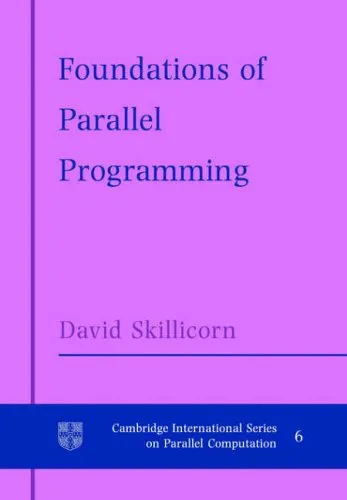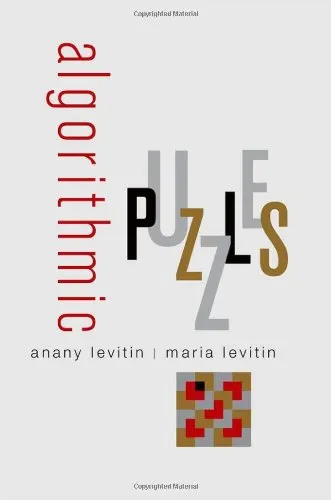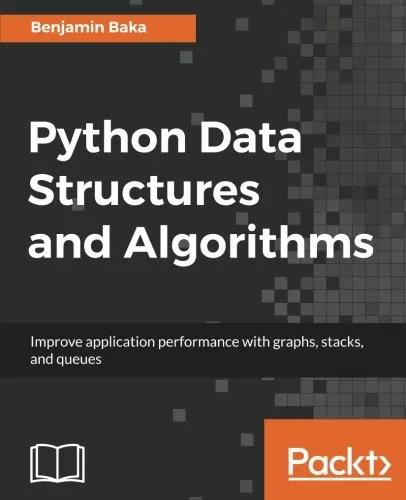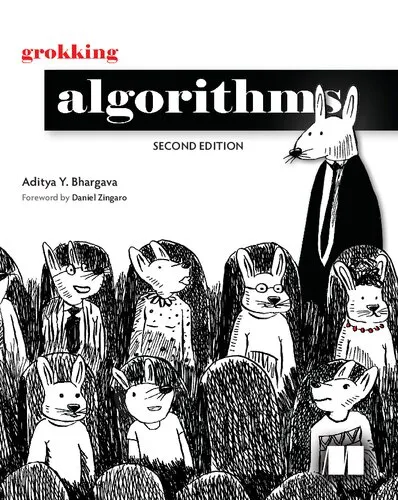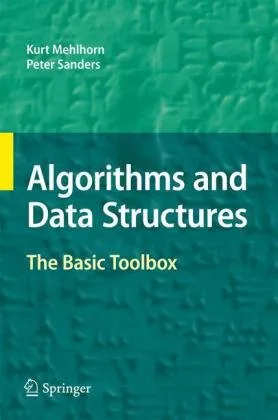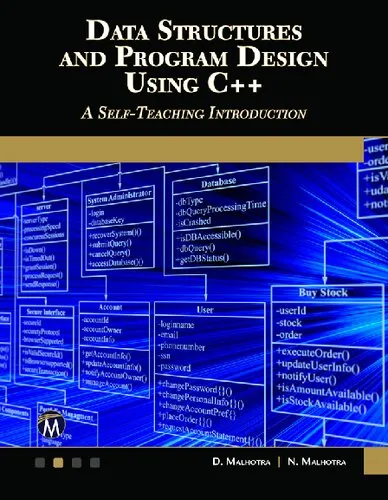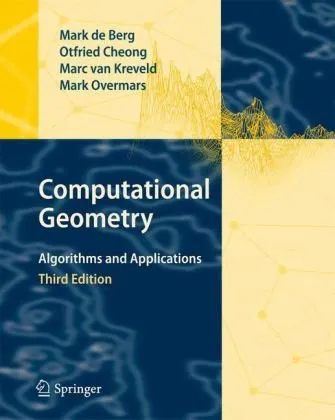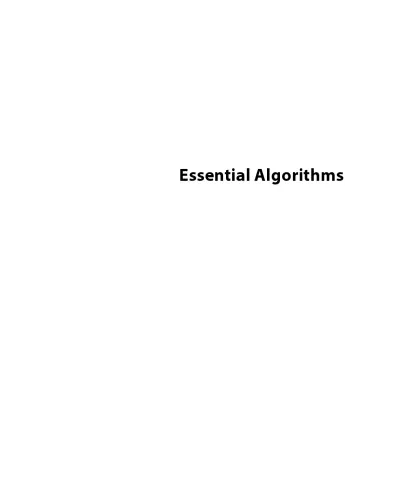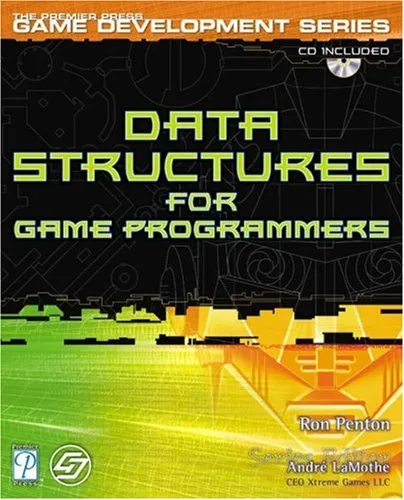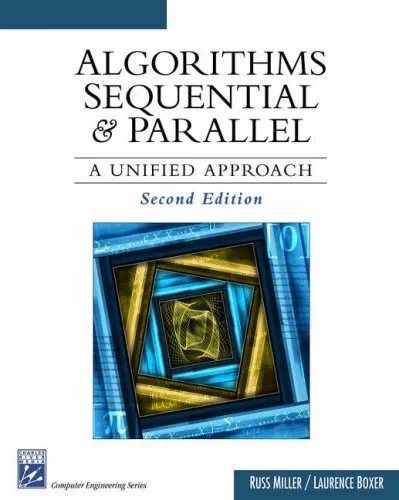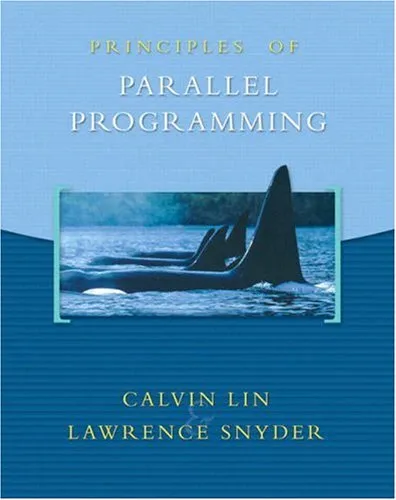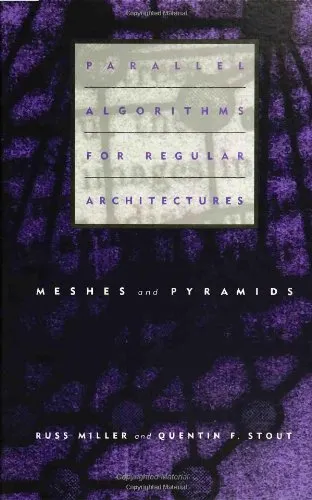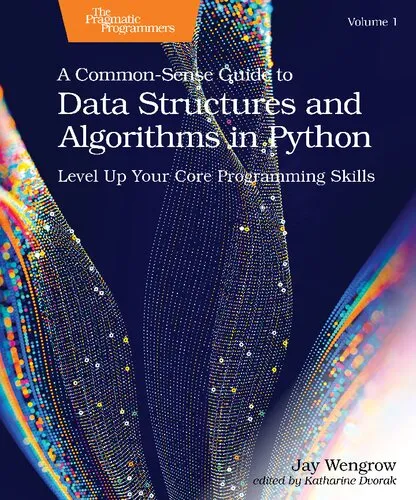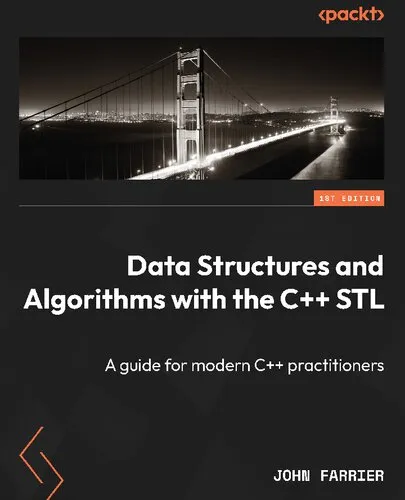Foundations of Parallel Programming (Cambridge International Series on Parallel Computation)
3.8
Reviews from our users

You Can Ask your questions from this book's AI after Login
Each download or ask from book AI costs 2 points. To earn more free points, please visit the Points Guide Page and complete some valuable actions.Related Refrences:
Introduction to Foundations of Parallel Programming
In the ever-evolving world of computing, parallel programming has become the cornerstone of performance, scalability, and efficiency. Foundations of Parallel Programming, part of the Cambridge International Series on Parallel Computation, presents a robust understanding of concepts, principles, and practical approaches to this critical area in computer science. Designed for students, researchers, and professionals alike, this book establishes foundational knowledge while addressing modern advancements in parallel processing and computation. Whether you are delving into the subject for the first time or aiming to enhance your expertise, this comprehensive text offers deep insights into the theoretical and practical aspects of parallel programming.
Detailed Summary of the Book
At its core, Foundations of Parallel Programming introduces readers to the fundamental ideas that make parallel computation essential in today’s world of multi-core processors, distributed systems, and cloud computing. The book is structured to help readers gradually build their understanding, starting with the basics of parallelism to the implementation of real-world algorithms across various computational models.
The book begins with an exploration of the mathematical and conceptual underpinnings of parallel programming. It introduces readers to topics such as dependency analysis, task partitioning, and load balancing. These principles are vital for understanding how tasks can be distributed effectively across different compute units while avoiding inefficiencies such as resource contention or idle processors.
As the book progresses, it delves into more complex material, including shared memory models, distributed memory systems, message-passing protocols, and synchronization techniques. It also compares different approaches to parallel programming, such as task parallelism, data parallelism, and pipeline parallelism. Readers are guided through various paradigms with concrete examples and detailed case studies, reinforcing their understanding of abstract concepts with hands-on applications.
Importantly, the book does not shy away from challenges in parallel computing, such as debugging, bottlenecks, network latencies, and scalability issues. These topics are critical for preparing developers to tackle real-world problems in high-performance computing.
By blending theory, practice, and problem-solving, Foundations of Parallel Programming delivers a comprehensive treatment of the key aspects needed to master parallel computing systems.
Key Takeaways
- Understand the core concepts of parallel computation, including dependencies, partitioning, and resource optimization.
- Learn how to implement parallel algorithms using different computational models and architectures such as shared and distributed memory systems.
- Master synchronization techniques and mechanisms to ensure correctness and efficiency in parallel execution.
- Gain insights into debugging, managing bottlenecks, and achieving scalability in modern environments.
- Develop the skills to evaluate and compare different parallel programming paradigms and approaches.
- Prepare for real-world high-performance computing challenges with practical examples and applications.
Famous Quotes from the Book
"Parallelism is not a luxury but a necessity in the modern era of computing, where performance demands often exceed the capacity of sequential systems."
"To master parallel programming is to understand the interplay between tasks, resources, and time."
"Efficiency in parallel programming requires designing solutions that are not just correct, but optimal in their use of computational resources."
Why This Book Matters
In today’s computational landscape, performance is the defining metric for success. With the rise of multi-core architectures, distributed systems, and the proliferation of data-intensive applications, understanding parallel programming is no longer optional—it is essential. Foundations of Parallel Programming stands out as a definitive guide to this critical field, offering readers the tools and skills they need to navigate this complex domain.
Unlike many other texts, this book offers a balanced treatment of theoretical foundations and practical implementation. Its structured approach ensures that readers not only grasp the "how" but also the "why" behind parallel programming techniques. This makes it invaluable for anyone looking to build a career in high-performance computing, scientific simulations, artificial intelligence, or big data analysis.
Moreover, the book’s relevance extends beyond traditional areas of computing. As industries increasingly adopt cloud-based and edge-based solutions, parallel algorithms and architectures have become indispensable for both innovation and competitiveness. By reading this book, professionals and students alike gain a comprehensive understanding that equips them to contribute to cutting-edge solutions in these areas.
In summary, Foundations of Parallel Programming is more than just a textbook—it is a gateway to mastering the science and artistry of parallel computation.
Free Direct Download
You Can Download this book after Login
Accessing books through legal platforms and public libraries not only supports the rights of authors and publishers but also contributes to the sustainability of reading culture. Before downloading, please take a moment to consider these options.
Find this book on other platforms:
WorldCat helps you find books in libraries worldwide.
See ratings, reviews, and discussions on Goodreads.
Find and buy rare or used books on AbeBooks.
1403
بازدید3.8
امتیاز0
نظر98%
رضایتReviews:
3.8
Based on 0 users review
Questions & Answers
Ask questions about this book or help others by answering
No questions yet. Be the first to ask!
